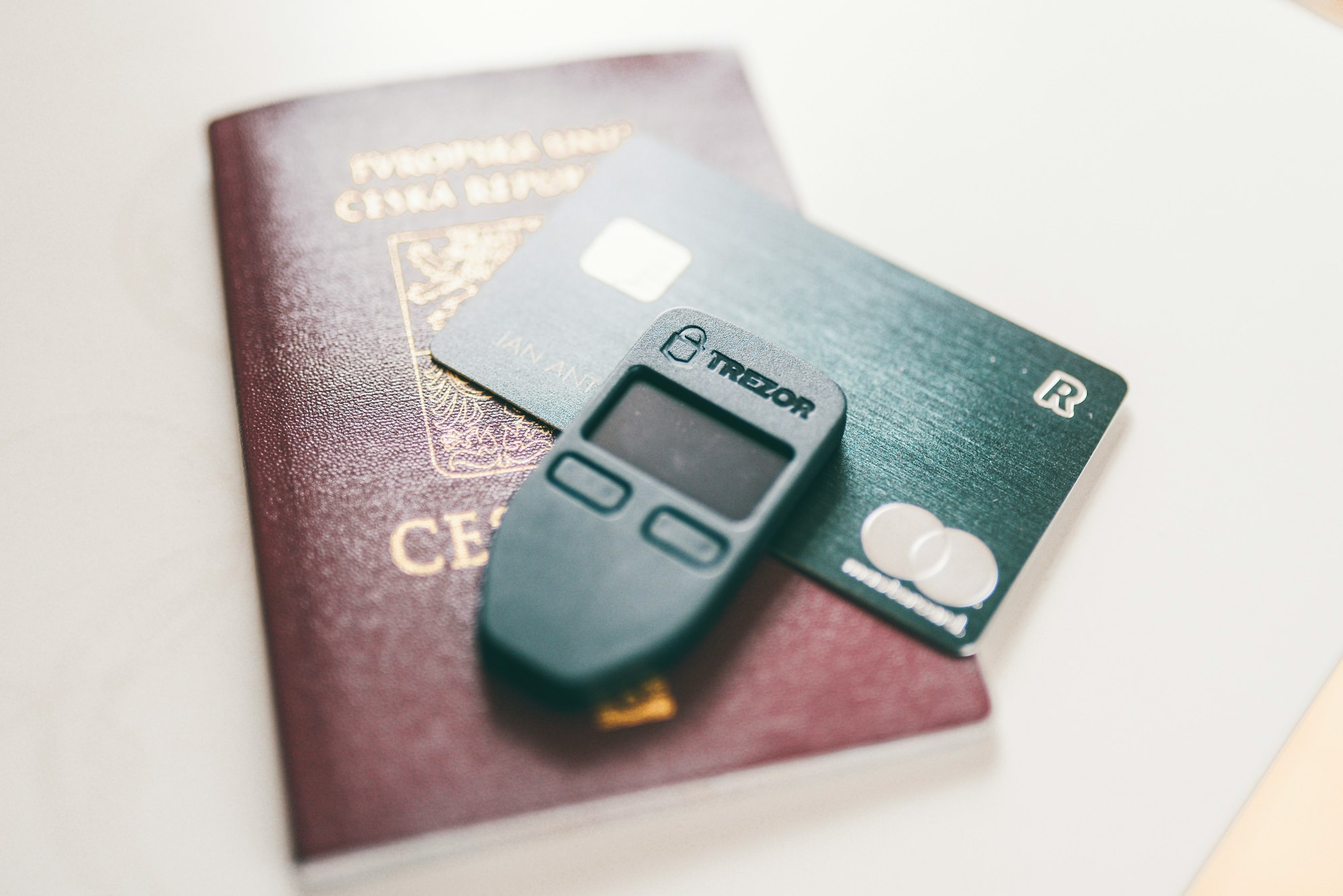Are you confident in accurately reporting cryptocurrency earnings on your tax returns?
What Investors Need to Know About Draft Form 1099-DA
Form 1099-DA will help you report cryptocurrency transactions. However, you may need to account for information gaps or overpay your taxes.
April 30, 2024 · 4 min read

On April 19, 2024, the Internal Revenue Service (IRS) introduced a draft Form 1099-DA, designed to gather detailed transaction data from cryptocurrency brokers (centralized exchanges, certain decentralized exchanges, and wallets) similar to stock brokers in traditional finance. While these forms will help taxpayers properly report and track cryptocurrency transactions, there will still be information gaps that taxpayers must account for based on their records. Taxpayers who do not address these information gaps will overpay their taxes.
Why was the Form 1099-DA introduced?
On August 25, 2023, the IRS issued proposed regulations (Regs) that defined the term “broker” and outlined the requirements for brokers to comply with tax reporting rules related to cryptocurrency transactions. The Regs require brokers to report cryptocurrency sold for cash and crypto-to-crypto trades, including the payment of transaction fees in a cryptocurrency. Brokers will report the proceeds (what you got) when disposing of your cryptocurrency. In addition, certain brokers will also need to include the cost basis of the cryptocurrency you disposed of (what you gave up).
These Regs also introduced a new form: Form 1099-DA. Brokers will use Form 1099-DA to report a transaction's proceeds and cost basis (and other information) to the IRS and taxpayers.
What information is on Form 1099-DA
Unsurprisingly, the form contains basic taxpayer information like:
- Name
- Address
- Taxpayer identification number (TIN) (Social Security number)
It also includes expected sales transaction information like:
- Date sold
- Date and time acquired
- Number of units
- Proceeds
- Cost basis (of the cryptocurrency sold)
This information is needed and helpful to complete your crypto tax filings.
In addition to the sale’s transaction information, the form includes other data points that raise privacy and security concerns. While these data points are related to the sale, they don’t impact tax calculations. Sale-related data points:
- Box 11a: Sale transaction ID (TxID)
- Box 11b: Digital asset address (wallet the units were sold from)
Transfer-related data points:
- Box 12a: Transfer-in TxID number
- Box 12b: Transfer-in digital asset address
- Box 12c: Number of units transferred
Will there be missing information?
Depending on the type of broker and your activity, the form could be missing information. For example, when using a centralized exchange (hosted wallet), the digital asset address related to the sale or transfer could be blank. However, the broker will indicate that the information wasn’t recorded on a distributed ledger. Basically, the transaction did not occur on the blockchain. The transaction happened on the broker’s internal ledger.
The box you will be most concerned with being blank is the cost basis box. This box is important because you can subtract the cost basis amount from your sales proceeds to reduce your gain (or realize a loss). There are scenarios where a broker can leave the cost basis box blank. These scenarios are called non-covered transactions, and there are three different non-covered scenarios:
- The asset was acquired before January 1, 2023 (subject to change based on final regs).
- The asset was transferred to the broker (no transfer system to share information)
- The broker did not provide hosted wallet services. (Hosted wallet services involve a broker controlling public and private keys, whereas you control the keys with an unhosted wallet.)
If any of these reasons apply, the cost basis box will be blank. The draft 1099-DA instructions state that if the box 1g (cost basis) is blank, you will need to determine your basis based on your own books and records. That is why CoinTracker is essential. The program will maintain your books and records, so you don’t need to manually.
For example, on January 2, 2026, Jane trades one ETH for 4,000 USDC (worth $4,000) using an unhosted wallet. The unhosted wallet broker will issue a 1099-DA that contains her personal information, the name of the digital asset (ETH), the number of units disposed of (one), the date it was disposed of (January 2, 2026), and the proceeds ($4,000). Lastly, the cost basis box will be blank. The broker will check the box in box 10a, and in box 10b, they will check “Broker did not provide hosted wallet services for it.”
If Jane doesn’t maintain adequate books and records, she may be required to treat the cost basis as $0. That means Jane will report a $4,000 gain ($4,000 - $0) on her sale of ETH when filing her tax return. However, Jane uses CoinTracker to keep her books and records. She can substantiate a cost basis of $3,000 for her one ETH. As a result, the gain she reports on her tax return is only $1,000 ($4,000 - $3,000).
When will I receive this form?
Per the Regs, brokers must report the proceeds for any transaction occurring on or after January 1, 2025. That means you will start seeing the Form 1099-DA in January or February 2026 for your 2025 tax return.
For example, on January 3, 2025, John trades 10 SOL for 2,000 USDC. The broker will issue you a 1099-DA in January or February of 2026.
Beginning on January 1, 2026, hosted wallet brokers must report cost basis information in addition to the sales proceeds. That means you will see the form 1099-DA in January or February 2027 for your 2026 tax return.
These dates will likely change because the IRS has not issued final regulations, and brokers need time to implement the rules.
How should I get ready for this?
The forms are still in draft form, and the final version could be different based on the final regulations. That said, it is clear that the IRS will require brokers to report sales information at some point, and maintaining adequate books and records is essential.
If you are a crypto user with multiple wallets or exchanges, it is vital that you use CoinTracker to help maintain your books and records. It will ensure you don’t overpay your taxes when brokers have missing cost basis information. It is apparent in the draft instructions that taxpayers will need to maintain their records for uncovered transactions, which will be likely, especially for anyone using an unhosted wallet.
Let us know if you have any questions or comments on X @CoinTracker.
CoinTracker delivers integrations for 500+ exchanges, wallets, and NFTs, and 23,000+ DeFi smart contracts. Track your portfolio, generate accurate reports and file in minutes with the only solution that integrates directly with TurboTax, H&R Block, or your own CPA.
Disclaimer: This post is informational only and is not intended as tax advice. For tax advice, please consult a tax professional.




